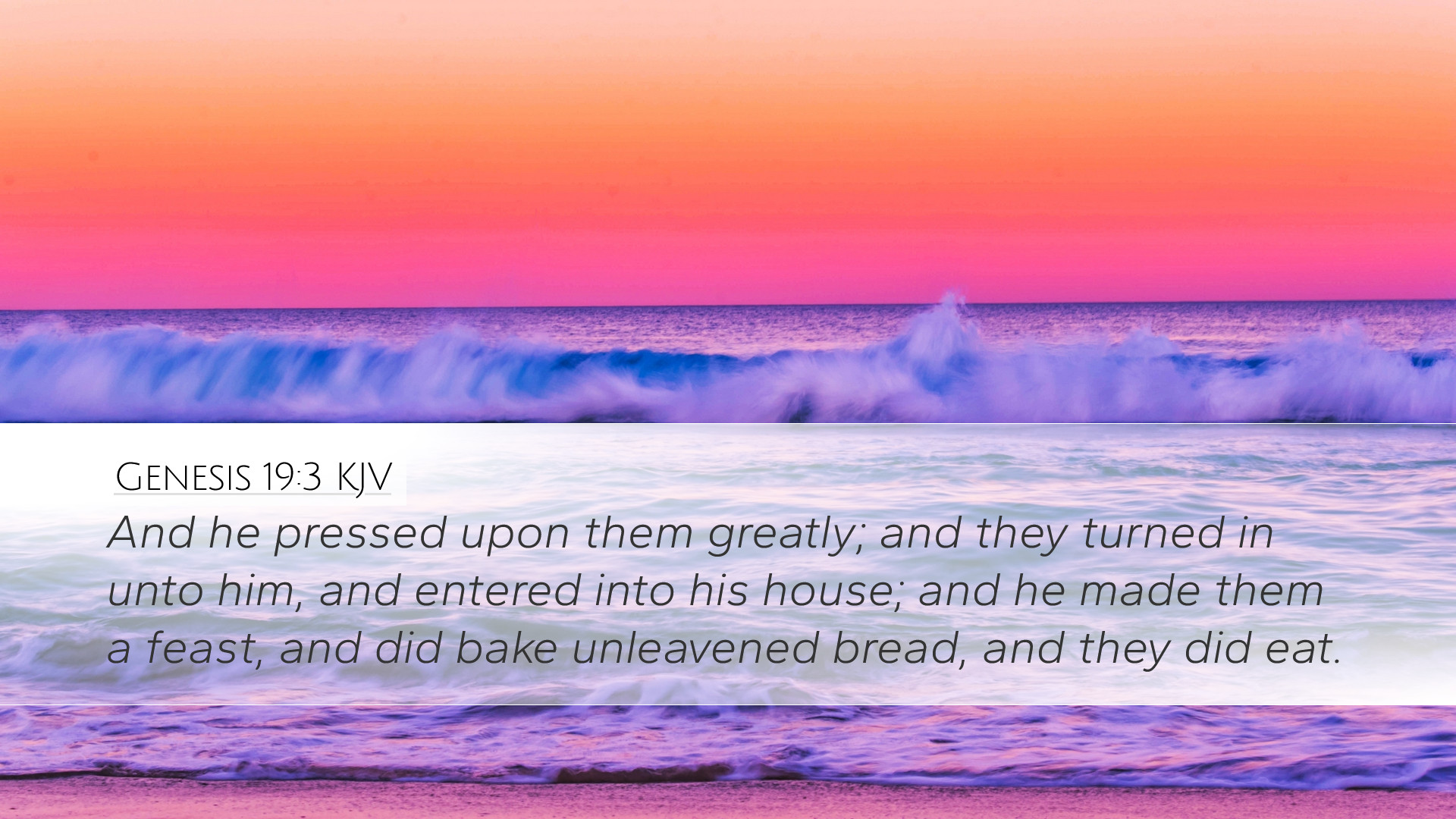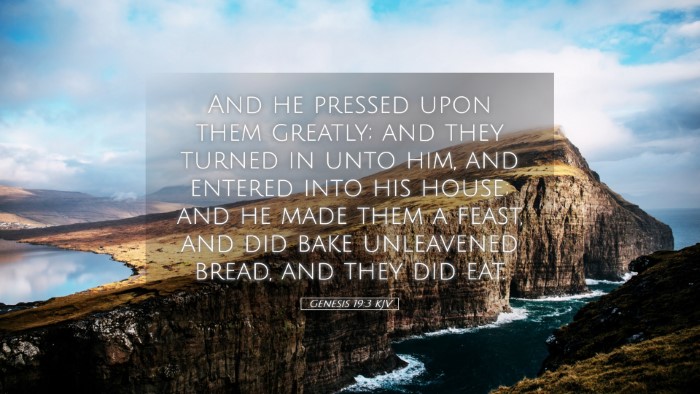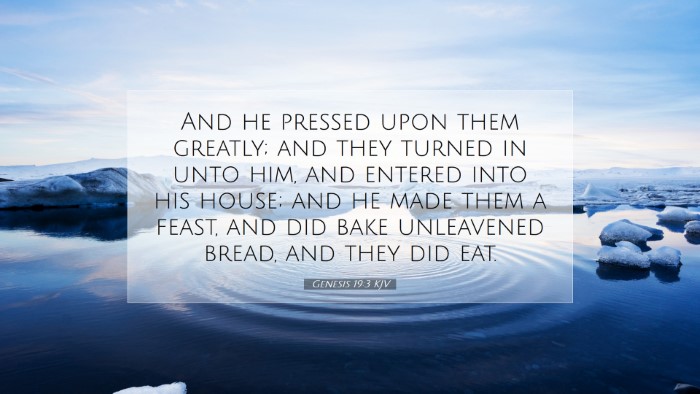Commentary on Genesis 19:3
Verse Context: Genesis 19 recounts the story of the destruction of Sodom and Gomorrah, with a focus on the hospitality of Lot and the wickedness of the cities. Verse 3 reads, “But he insisted strongly; so they turned in to him and entered his house. Then he made them a feast and baked unleavened bread, and they ate.” This moment is pivotal as it illustrates Lot's character and the social customs of the time regarding hospitality.
Exegesis and Analysis
The insistence of Lot that the angels, who appeared as men, come into his house reflects a deep-rooted cultural value of hospitality in the Ancient Near East. This is further emphasized by the urgency in Lot's request, suggesting the dangers of the streets of Sodom.
Matthew Henry's Commentary
Henry provides a thorough analysis of Lot's character, emphasizing his righteousness amidst a corrupt society. He highlights that Lot’s insistence upon his guests accepting his hospitality indicates a moral obligation he felt toward them, contrasting the depravity surrounding him. Lot’s behavior illustrates a tentatively righteous man making the best decisions possible within a fallen society.
Albert Barnes' Notes
Barnes notes the cultural implications of Lot's actions. His strong insistence that the angels stay with him demonstrates not only his commitment to uphold the custom of hospitality but also reflects the dire situation in Sodom. Lot understood that the wickedness of the townspeople would pose a threat to his guests. Furthermore, the preparation of unleavened bread shows he was ready and attentive to their needs—highlighting his role as a protector and host. This sets a critical stage for the unfolding narrative of divine judgment.
Adam Clarke's Commentary
Clarke elaborates on the significance of the feast Lot prepared. He asserts that the meal of unleavened bread symbolizes purity and urgency, possibly reflecting the urgency of the impending judgment on Sodom. Clarke identifies this as a foreshadowing of the Exodus, linking Lot's situation to a larger biblical narrative. He emphasizes that Lot’s actions suggest a desperate hope for redemption, both for himself and his family within a wicked city.
Theological Insights
This verse serves as a profound commentary on moral integrity within a corrupt culture. Pastors and students of theology can draw several vital lessons:
- The Power of Hospitality: The value placed upon hospitality in the ancient world serves as an essential lesson for contemporary Christian life. Lot’s actions remind believers of the importance of welcoming the stranger, reflecting God's love and grace.
- Moral Courage: Lot's readiness to stand firm against the evil of his surroundings provides a model for moral courage. In a culture steeped in wickedness, the ability to act righteously may often come at personal cost, a reality faced by many believers today.
- Redemption and Judgment: The dual themes of judgment and redemption are prevalent in Lot’s actions. His hospitality acts as a symbolic gesture of hope amid impending doom, teaching that even in wicked environments, righteousness can be preserved and nurtured.
Conclusion
In Genesis 19:3, we see a pivotal moment that encapsulates the themes of hospitality, righteousness, and the struggle between good and evil. Through the insights of commentators like Matthew Henry, Albert Barnes, and Adam Clarke, we are reminded of the significant implications this verse holds—not only within its immediate narrative context but also for believers navigating a complex and often hostile world. Lot’s hospitality stands as a beacon for Christians, calling them to live out their faith with courage and integrity, reflecting God's unwavering love and commitment to justice.


